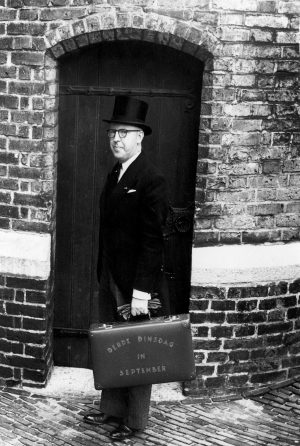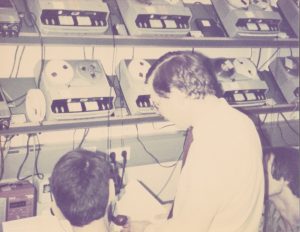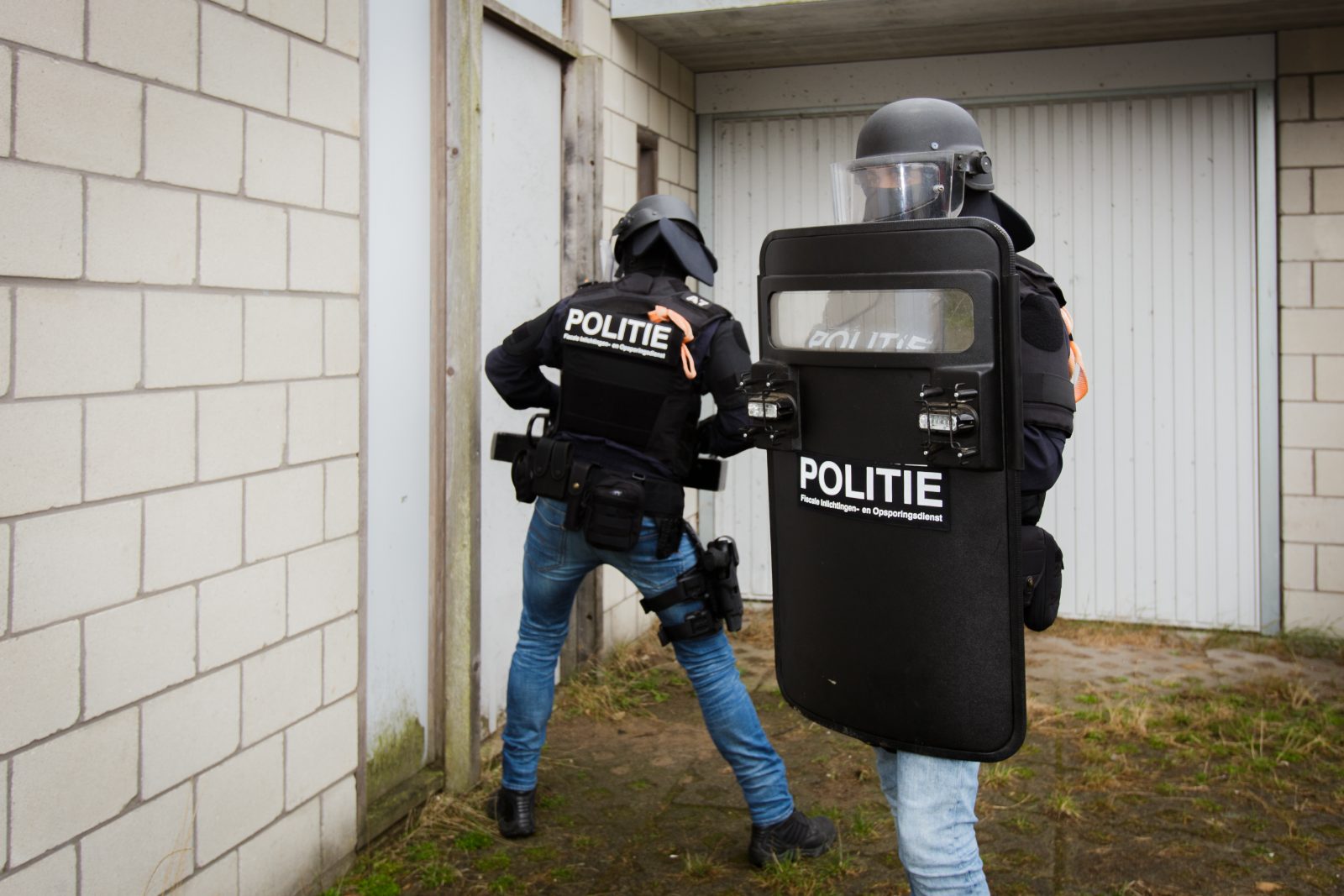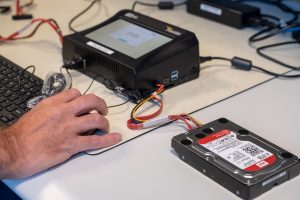The story of the FIOD
Publication date 27-02-2025, 9:35 | Last update 27-02-2025, 9:53

On 20 September 1945, the FIOD is established in the Lloyd building in Amsterdam, with six employees and one secretary. There are five bakelite telephones, a borrowed typewriter, two service cars provided by the army, and the order to track down illegal income and assets obtained during the Second World War. At that time, the FIOD consisted of three units: the Intelligence Service, the Fiscal Investigation Service and the Customs Investigation Service.76 years after its creation, the investigation capabilities, the resources and the number of FIOD employees have expanded many times over. Because fraud does not respect borders, we work on creating a financially safe Netherlands together with our national and international partners.
1945-1995

The tasks assigned to the FIOD were not new. Tax fraud is timeless. The collection of intelligence and the investigation of, and fight against tax fraud took place even before the war. What was new was the combination of those tasks, the focus on the fight against fraud and the special investigative authorities. In the mid-50s, the attention slowly shifted away from illegal income from the war to tax and financial crime in the broadest sense. The FIOD has always had a lot of work. Over the years, this work has become more wide-ranging, complex and international due to economic developments and digitalisation.
After the Second World War, it was important for the recovery of our country to get government affairs and taxation back on track for the reconstruction. The Netherlands Tax Authority received special powers to investigate tax fraud and it set up a separate division: the Fiscal Intelligence and Investigation Service. This was abbreviated to FIOD.
1995-2008
In 1999, the FIOD was merged into one service with the then Economic Investigation Service (ECD) of the Ministry of Economic Affairs, becoming the Fiscal Intelligence and Investigation Service - Economic Investigation Service (FIOD-ECD). This reorganisation put an end to the three separate departments: the Intelligence Service, Fiscal Investigation Service and the Customs Investigation Service. Since 2010, FIOD has been the sole name of the service, and it is no longer considered an abbreviation.
On 1 June 2007, the Special Investigation Services Act (Wet op de bijzondere opsporingsdiensten) came into force. This provides for the investigative powers of the FIOD, Inlichtingen- en Opsporingsdienst van de Inspectie Leefomgeving en Transport (ILT) (Intelligence and Investigation Service of the Environment and Transport Inspectorate) , Inspectie SZW (Inspectorate of the Ministry of Social Affairs and Employment) and the Nederlandse Voedsel- en Warenautoriteit (NVWA) (Dutch Food and Consumer Product Safety Authority ) under a single law. These investigative services work together in the BOD platform (Platform Bijzondere Opsporingsdiensten).

The merger with the Economic Control Service meant an expansion of the investigative tasks. Initially, the FIOD worked on the investigation of and fight against tax fraud and in 1999, financial-economic crime was added. This concerns combatting fraud involving raw materials for drugs, trademark fraud, and healthcare fraud. Since that time, there has been increasing collaboration with both public and private organisations such as banks and insurers.
The combination of different areas of work is what makes the FIOD a special organisation. It leads to work on other kinds of investigations and contact with many organisations other than only the Netherlands Tax Authority and Customs or the police. In other countries, a combination of tasks like this is rare: normally, the tax investigation authorities, customs investigation authorities and police are separate. The FIOD addresses all areas.
2008-present
Since 2008, the FIOD has doubled its staff. Beginning with only seven employees in 1945, by 2021 we had more than 1600 people on staff. We are part of the Ministry of Finance, and we work for this and other ministries. Our work and our tasks have expanded to include the investigation of terrorism financing, insolvency fraud, money laundering and corruption.

The environment and the work we do is changing rapidly due to the further digitisation and globalisation of society. The FIOD works according to strict national and international laws and regulations. By working together with more and more countries and investigation services worldwide, obstacles to investigation are being resolved step by step.
The FIOD is the investigation service for combatting financial and tax crime. We are part of the Ministry of Finance, and we work for this and other ministries under the authority of the Public Prosecution Service and the National Public Prosecutor's Office for Serious Fraud, Environmental Crime and Asset Confiscation.
The investigation of, and fight against tax fraud and financial-economic crime are important tasks and there is a continuous focus on broadening and deepening the topics of investigation, such as money laundering, terrorist financing, cybercrime and corruption, and working together with national and international partners.
